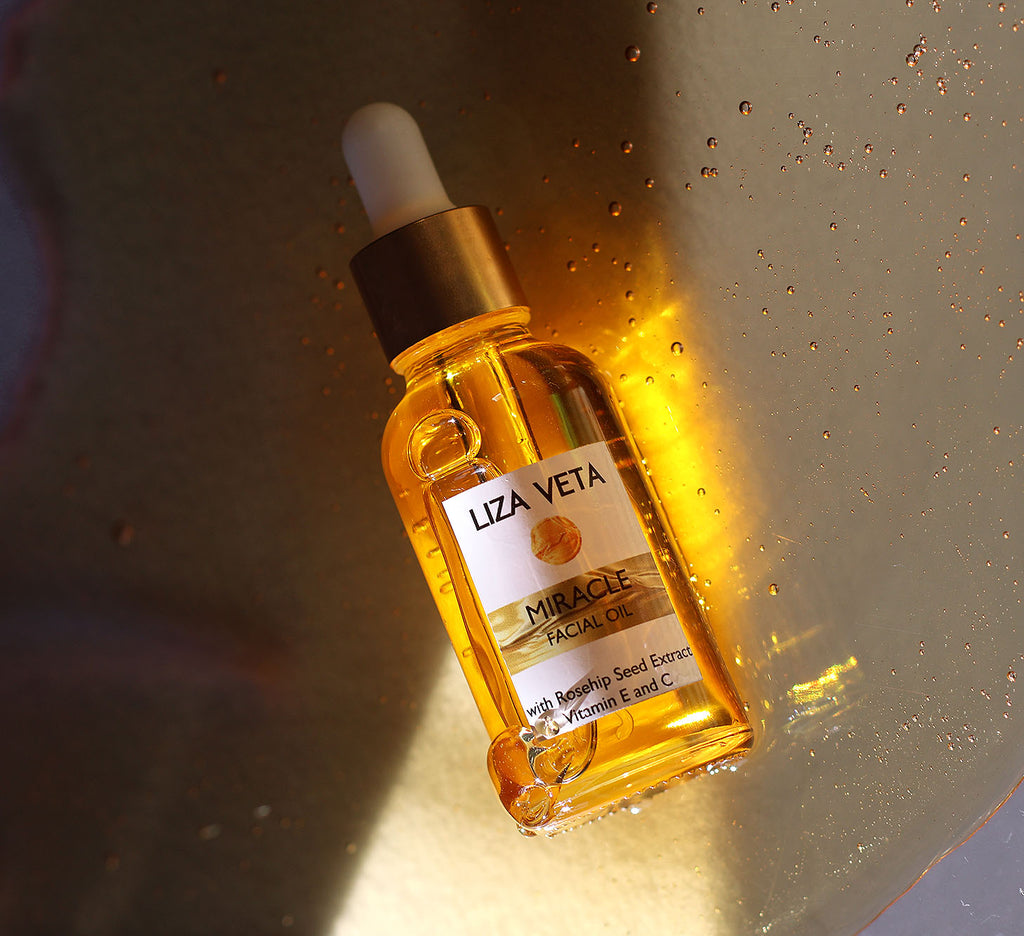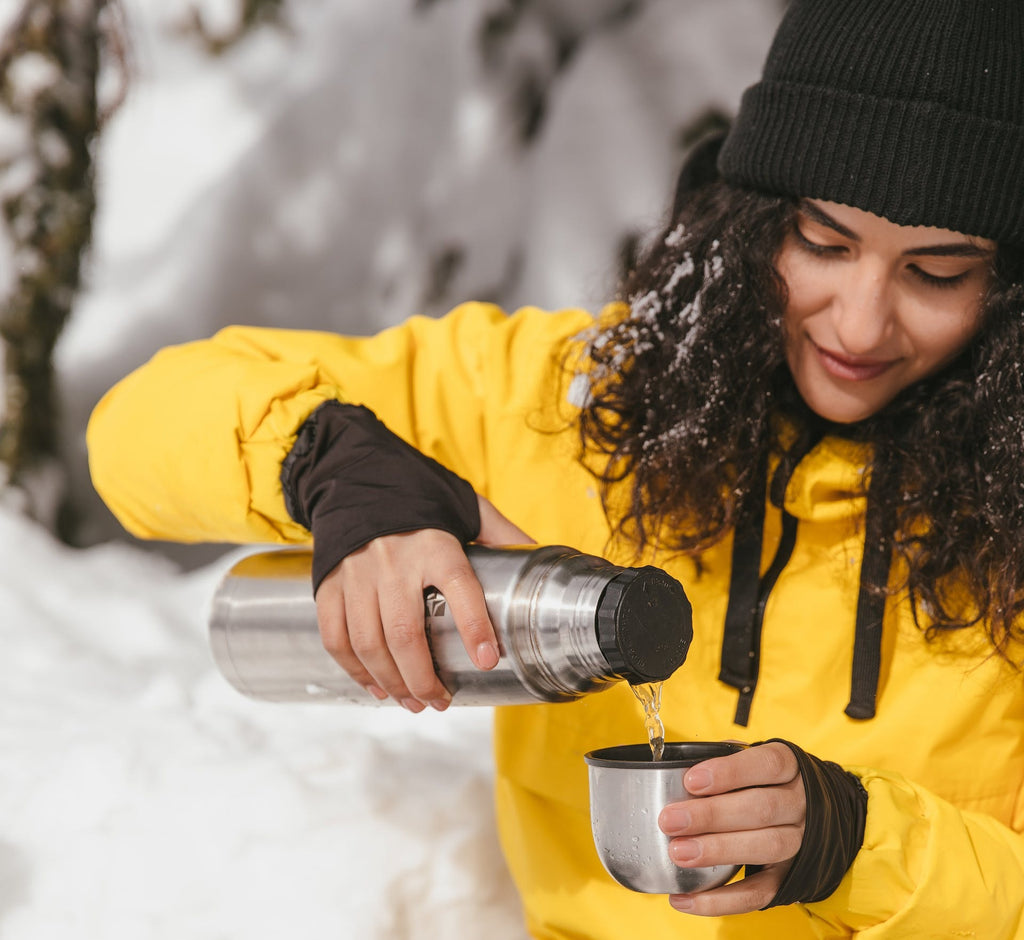
As the winter season approaches, many of us look forward to cosy evenings by the fireplace, hot cocoa, and the beauty of snowfall. However, with the joys of winter come some skin challenges. The cold, dry air can leave our skin feeling tight, itchy, and even cracked. During winter, our skin undergoes significant changes due to the drop in temperature and humidity. The cold air outside and the heated indoor environments can lead to decreased moisture levels in the skin. This leads to dryness, which can be aggravated by harsh winds and low humidity. So, why do we have dry skin in winter? It's a result of the loss of the skin's natural oils and hydration due to these environmental factors.
Tailoring Your Skincare Routine to Your Skin Type

Different skin types require tailored care during the winter months:
-
Dry Skin: If you have naturally dry skin, the cold weather can make it even more challenging to keep your skin hydrated. Choose richer, cream-based moisturisers that provide intense hydration.
-
Oily Skin: Those with oily skin might think they can skip moisturising in winter, but that's a misconception. Lightweight, non-comedogenic moisturisers are ideal.
-
Combination Skin: Combination skin types should use different products for different areas. Hydrate the dry areas while controlling excess oil in the T-zone.
- Sensitive Skin: If your skin is sensitive, the winter climate can heighten its reactivity. Use gentle, fragrance-free moisturisers that soothe and protect without causing irritation.
- Miracle Facial Oil for All Skin Types: Our Miracle Facial Oil works well for all skin types. It makes your skin looking nourished, moisturised and rejuvenated, while also providing a calming and mood boosting effect.
Combination Skin: Our Miracle Facial Oil is adaptable for use in different areas of your face. Hydrate the dry areas while controlling excess oil in the T-zone, ensuring that all parts of your face receive the care they need. So, whether you have dry, oily, or combination skin, our "Miracle Facial Oil" can be your go-to winter companion, providing the hydration and nourishment necessary to keep your skin radiant and healthy throughout the colder months.
Why Hydration is Key for Winter Skincare

Proper hydration is essential for healthy skin year-round, but it's especially critical in winter. To understand why, let's dive into the science of skin hydration. The outermost layer of the skin, the stratum corneum, is composed of cells held together by lipids. These lipids serve as a barrier to prevent water loss from the skin. In cold, dry conditions, this barrier can become compromised, leading to moisture loss and dry skin.
To combat this, it's essential to use hydrating products such as moisturisers and serums. These formulations are designed to lock in moisture and repair the skin's natural barrier, keeping your skin supple and radiant.
The Importance of Cleansing and Exfoliation
Cleansing and exfoliation play crucial roles in your winter skincare routine. In the winter months, cold and dry air can lead to a buildup of impurities on the skin's surface. Proper cleansing helps remove these impurities, excess oil, and any lingering makeup, providing a fresh canvas for your skincare products.
However, it's important to choose the right cleanser. Harsh cleansers can strip the skin of its natural oils, leading to further dryness and potentially causing irritation. Instead, opt for a gentle, hydrating cleanser that cleans effectively without compromising your skin's moisture barrier. Exfoliation is also the process of removing dead skin cells from the skin's surface. This not only unclogs pores but also encourages the growth of new, healthy skin cells. During winter, exfoliation can help combat dullness and maintain skin freshness.
Yet, it's crucial to exfoliate in moderation. Over-exfoliation, especially with harsh scrubs or chemical exfoliants, can lead to redness, irritation, and dryness, which is the last thing we want during winter. Limit exfoliation to once or twice a week, and opt for products with gentle exfoliating agents like glycolic acid or lactic acid.
By cleansing and exfoliating with the right products and in the right way, you can ensure that your skin stays clean, refreshed, and ready to absorb the benefits of your winter skincare routine.
The Importance of Sunscreen in Winter Skincare
Many people wonder why sunscreen is necessary in winter when the sun seems less intense. However, it's a common misconception that UV rays are less harmful during the colder months. In fact, UV rays can be even more damaging when reflected off snow.
UVA rays, responsible for premature ageing, can penetrate clouds and windows. UVB rays, which cause sunburn, are also a concern. Therefore, sunscreen with an appropriate SPF is crucial to protect your skin from UV damage.
Protecting Sensitive Areas
During winter, certain areas of the skin, like the lips, hands, and under the eyes, need special attention. These areas are more susceptible to dryness and irritation due to their thin and delicate nature.
-
Lips: Cold winds can lead to chapped lips. Use a high-quality, natural, SPF lip balm to keep them moisturised.
-
Hands: Frequent hand washing and exposure to the elements can result in dry, cracked hands. Apply a rich hand cream regularly and wear gloves when outdoors. Enhance your hand's feel with our Neroli Hand and Body Lotion. Not only will this lotion give you a radiant glow, but it will also leave your skin feeling soft, smooth, and nourished. A blend of five pure natural extracts - liquorice, papaya, cranberry, strawberry and melon - work together to enhance elasticity, reduce redness, hyperpigmentation, and the appearance of ageing signs, promote the growth of healthier cells, hydrate and alleviate dryness, and protect the skin from the harsh effects of cold weather.
-
Under the Eyes: The skin under the eyes is thinner and more prone to dark circles and puffiness. Use a hydrating eye cream to combat these issues.
The Role of Nutrition in Winter Skincare
Healthy skin isn't just about the products you apply externally; it's also influenced by what you eat. During winter, consider including these skin-friendly foods in your diet:
-
Avocado: Rich in healthy fats, avocados provide moisture to your skin from within. A diet rich in healthy fats can contribute to a radiant complexion. Well-hydrated skin tends to look more supple and healthy.
-
Fatty Fish: Salmon and mackerel are packed with omega-3 fatty acids, which help maintain skin's elasticity, natural barrier, preventing moisture loss and keeping the skin hydrated. This can reduce dryness and flakiness. While not a replacement for sunscreen, omega-3s may offer some level of protection against UV damage, which can help prevent premature aging and sunburn.
-
Nuts and Seeds: Almonds, walnuts, and flaxseeds are excellent sources of vitamins and minerals that support skin health. Vitamin E is a powerful antioxidant. It helps protect cells from damage caused by free radicals. It also has skin-nourishing properties and help to moisturise and soothe the skin, reducing dryness and irritation.
-
Citrus Fruits: Oranges and grapefruits contain vitamin C, which is essential for collagen production and skin repair. Collagen is a protein that keeps your skin strong and elastic. As you get older, you make less collagen, and that can make your skin get wrinkles and become saggy. Vitamin C is really good at making collagen and protecting the collagen you already have. When you eat foods with vitamin C, like oranges and grapefruits, you're helping your skin stay strong and not get wrinkles and saggy. It's like giving your skin what it needs to look good.

Your wellbeing plays a significant role in the health of your skin, especially during winter. Stress, lack of sleep, and dehydration can all take a toll on your skin's appearance.
-
Stress Management: High stress levels can lead to skin issues. Practice stress-reduction techniques daily, such as meditation, yoga, or deep breathing exercises. Start your day with a few minutes of deep breathing, meditation, or gentle stretching. This can set a positive tone for the day ahead and help you approach challenges with a calmer mindset. Take a short break during your workday to practice stress reduction. Even a brief walk or a few moments of mindful breathing can provide a mental reset. When you face a particularly stressful situation, take a moment to practice deep breathing or a quick mindfulness exercise. These techniques can help you stay composed and make better decisions under pressure.
-
Hydration: Staying well-hydrated is critical. Ensure you're drinking enough water throughout the day to maintain skin's moisture. Proper hydration can contribute to clear, radiant skin. It helps maintain the skin's elasticity and reduces the risk of dryness and irritation.
For more wellbeing topics, check out these other posts:
